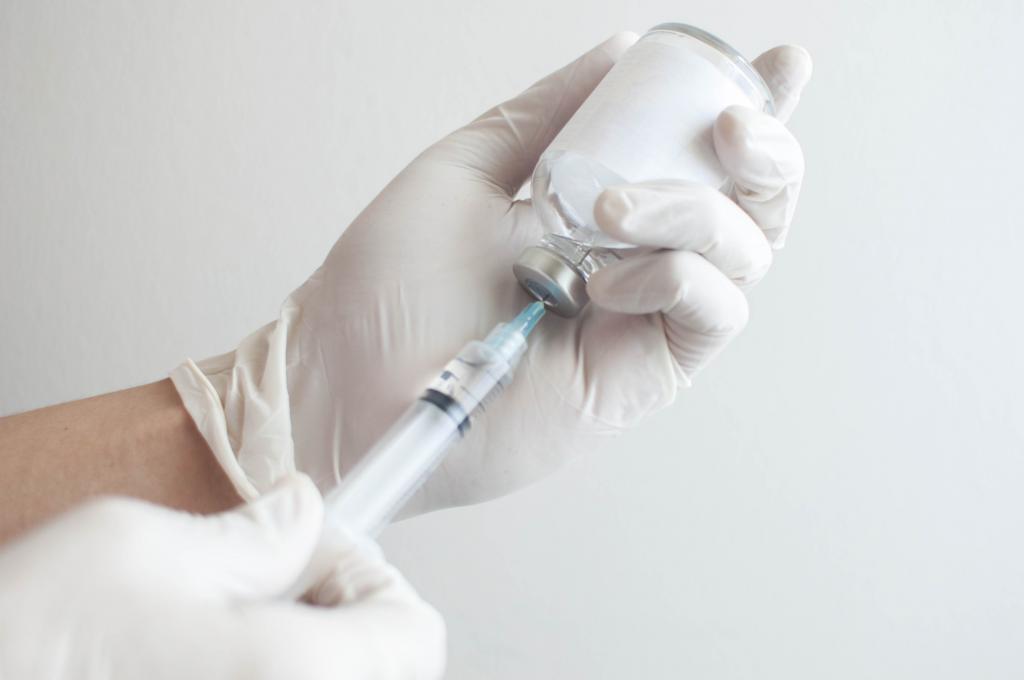Travel season is here for Americans, and everyone is planning exciting vacations to destinations around the world. But there’s one thing you don’t want to forget to plan: vaccinations. Visiting beautiful foreign destinations means you need to protect yourself against diseases rarely found in the U.S. before hopping on a plane.
Despite the wealth of misinformation you’ll find about vaccinations on the internet today, getting the proper vaccinations before you travel is important. Without these vaccinations, you could wind up contracting a life threatening illness.
 Outbreaks Are Becoming Increasingly Common
Outbreaks Are Becoming Increasingly Common
If you think that traveling without worrying about vaccinations is best, think again. Thanks to a high number of people in the U.S. who’ve chosen to opt out of vaccinations, outbreaks of illnesses that were once eradicated in America are resurfacing – and they’re taking lives every day.
Take measles for example. In January 2019, Contagion Live¹ reported that Clark County in the state of Washington declared a public health emergency when a measles outbreak occurred. During the outbreak, 23 cases of measles were confirmed, and more suspected cases were monitored. Measles is a highly contagious disease, and it spreads rapidly. Anyone who isn’t vaccinated can contract measles.
And while measles is preventable thanks to vaccinations, those who don’t receive a measles vaccine can spread the illness without even realizing it. In 2019, 349 cases of the measles in 26 different states and a total of 17 measles outbreaks across the U.S. were reported by the CDC², putting huge numbers of individuals at risk.
And the problem isn’t just in the United States. According to the World Health Organization³, “vaccine hesitancy,” or the increase in people opting to not receive vaccinations, is one of the biggest threats to public health right now. Measles is common in other areas of the world, and U.S. travelers who are unvaccinated can pick up the disease and bring it home, introducing it to and spreading it through their communities.
More than 80 U.S. individuals who traveled abroad brought measles back home with them in 2018⁴. That’s the highest number of imported cases of measles over the last 20 years – proving that heading off to foreign destinations without vaccines endangers you and those around you. As U.S. citizens travel increasingly more in the months ahead, it’s highly likely that skipping vaccinations will pose a huge risk for more disease outbreaks.
There Are 3 Types of Travel Vaccines
Even if you are vaccinated, there are many adults who forget to update their vaccinations regularly. So, before you travel you’ll need to check your vaccinations with your doctor to make sure you aren’t missing any crucial vaccinations.
Vaccines are broken down into three categories for travelers, according to the CDC⁵:
1. Routine Vaccines: Routine vaccines are recommended for every person living in the United States. These are based on age, health condition, and other risk factors, and they’re often thought of as childhood vaccines because they’re commonly given to kids before they attend school. However, routine vaccines also include those recommended annually and for adults, like the flu vaccine or the tetanus booster.
2. Required Vaccines: Required vaccines are vaccinations that travelers must have when traveling to certain countries. If you don’t have these vaccinations, you won’t be allowed into the country. For example, many countries require the yellow fever vaccine. The government of the specific country you’re traveling to will stipulate which required vaccines you need.
3. Recommended Vaccines: Recommended vaccines are specific vaccinations recommended by the CDC for those traveling out of the United States. While these vaccinations aren’t required by the countries you’re visiting, they are meant to protect you from contracting common travel-related medical conditions, like typhoid.
You’ll want to familiarize yourself with each of these types of vaccinations and determine which you’ll need for your upcoming travel plans. Remember, you’ll need to prepare ahead of time for any necessary vaccinations, since it can take time before the vaccines are effective.
What Travel Vaccines Do I Need?
The vaccines you’ll need for your specific travel plans depend on where you’re headed. You’ll want to consider a few different factors when deciding which vaccines you need to get before leaving home.
First, look at the required vaccines that are necessary for the country you’re traveling to. Does the country require a vaccine that you don’t have yet? Or will you need a booster for a vaccine that may have expired?
You should also consider where you’ll be staying and the activities you’ll be participating in while traveling. If you’ll be staying in a hotel or a busy city, you may not need the same vaccines as you would if you were camping, staying at a hostel, or visiting areas of the jungle.
The CDC⁶ recommends that all U.S. travelers be up to date on their routine vaccinations. This is because there are many countries that still have diseases that have been eradicated in the U.S., so anyone who isn’t vaccinated could contract those diseases when traveling. If you were vaccinated with your routine vaccines previously you might need a booster or renewal, so check with your doctor about what’s no longer up to date.
The Professional Hobo⁷ recommends checking with your doctor or the CDC’s recommendations to see if you need any of the following popular vaccinations for travelers:
- TDaP (Tetanus, Diphtheria, and Pertussis)
- MMR (Measles, Mumps, and Rubella)
- Polio
- Hepatitis A
- Hepatitis B
- Typhoid
- Cholera
- Meningitis
- Japanese Encephalitis
You may also be able to pick up medications to prevent ailments and diseases while traveling, like malaria medication that’s meant to be taken daily.
How to Get Vaccinated for Cheap
If you need any vaccinations, boosters, or renewals, you’ll want to plan ahead. Make sure to visit your doctor, who can administer vaccines in-office, or a local clinic that can give vaccines. You can also consider visiting travel clinics that offer vaccinations. But no matter where you head to get your shots, you’ll want to make sure you do so well in advance of your planned vacation – vaccinations can take time to become effective, and you’ll want to make sure your health is protected before heading out of the country.
While insurance often covers the cost of vaccinations, there may be some vaccinations that are costly. If you’re looking to save money, you can check with your personal doctor about the costs. You can also visit your local drug store’s pharmacy, as many pharmacies are able to give out certain vaccinations. Travel clinics may also offer discounted rates if you use their planning or preparation services. And don’t forget to contact your insurance provider to see if you can get your vaccinations entirely covered.


